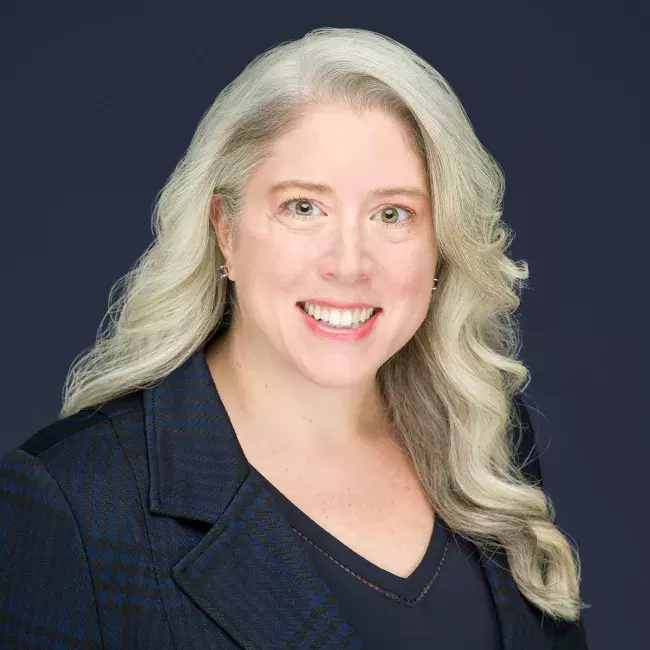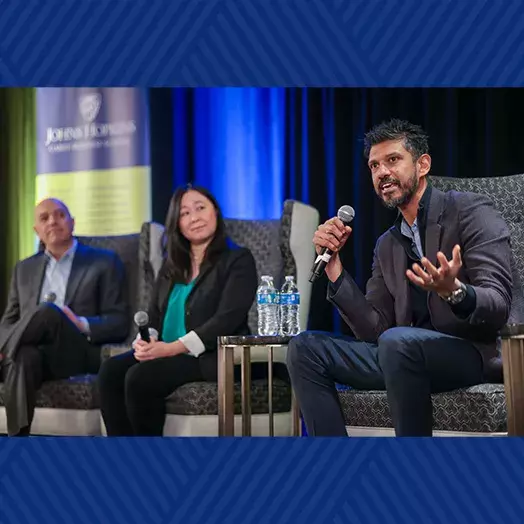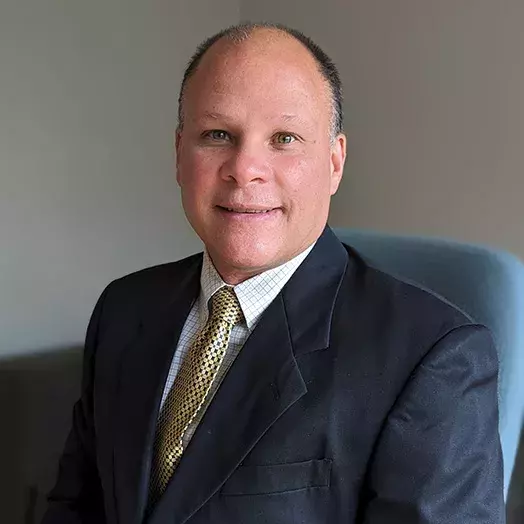Reardon collaborates with varying industrial interests in areas like telecommunications, cybersecurity, semiconductors, health care, transportation, artificial intelligence, advanced manufacturing, and sustainability.

Moving to MITRE gives alum Allison Reardon (MBA ’07) a new avenue for values
What does it take to innovate in ways that make a meaningful impact on entire generations?
That might not sound like a question for a business graduate. In fact, it sounds a little like public sector work.
That’s because it is, and it’s what Allison Reardon (MBA ’07) is spending her newest professional chapter doing. In the fall, she took on the role of director of industry collaboration at MITRE Engenuity.
“My role is to champion the next generation of innovation, working across commercial industry, government, and academia,” Reardon said. “I was really looking for a place that had that real-world impact and big impact. There is a focus on innovation and technology, tackling the world’s most pressing problems and shaping career breakthroughs. These were the tenets I was looking for professionally.”
MITRE Engenuity is the MITRE Corporation’s foundation for public good. It’s an independent, non-partisan organization that works at the intersection of government and industry to accelerate innovation essential to national security, economic stability, and society’s way of life. Reardon collaborates with varying industrial interests in areas like telecommunications, cybersecurity, semiconductors, health care, transportation, AI, synthetic biology, advanced manufacturing, and sustainability. Her job is to find ways to make all of those industries meet the needs of changing generations.
This is serious work aimed at the greater good—unwavering humanity meeting relentless advancement.
“Technology is the market sector where we can make the greatest positive impact and serve the most people,” said Reardon. “I believe we have the opportunity to create solutions at scale that improve quality of life while protecting citizens and our environment. I’m fortunate that I get to collaborate with the best minds from small to large companies, nonprofits, academia, and allied governments worldwide to deliver those solutions.”
One of her first projects is the CHIPS Act, passed in summer 2022, to bring semiconductor manufacturing and talent back to the U.S. The domestic loss of that talent and capability contributed to the supply chain crises hitting the country since the beginning of COVID-19, and MITRE, says Reardon, is working on revitalizing the industry domestically. Working with colleagues who have played an essential role in defining what a fair, equitable, and democratic National Semiconductor Technology Center might look like, she focused on how the defense sector can contribute to accelerating the US microelectronics innovation engine from research and development through market delivery.
“You have the opportunity to protect citizens with the best minds dedicated to these solutions,” she said.
Thinking differently
Reardon has invested in her ability to think differently. She earned her Design Thinking for Innovation certificate from Carey’s Executive Education program and says it’s made a difference in how she approaches challenges, using some of the modalities she took from that program in both her personal and professional life to explore challenges more deeply, define the question more accurately, and find more possibilities.
Her career before MITRE Engenuity included serving as chief operating officer and partner at Cyber Capital Partners, supporting national and infrastructure market security. Prior to that, she was an assistant vice president post with AT&T supporting defense customers to modernize networks and cyber capabilities around the world. She worked at Exelis, Lockheed Martin, URS, and The World Bank – in management, business development, and analyst positions. All of these experiences contributed to her naming as a Johns Hopkins University Alumni Association Distinguished Alumna last fall.
Staying connected with Carey has meant broadening her perspective. She sits on the Dean’s Alumni Advisory Board, which includes a role as chair of the Nominating Committee and a seat on the Executive Committee. Working with people from other industries has changed the way she sees things.
“When we talk about issues or even looking at student résumés, the different perspectives you get is really insightful,” Reardon said. “It’s been really helpful in my own career. And [the board members] spend so much time with students, it’s just so nice to be around people with energy or enthusiasm to grow in their careers or sometimes switch directions.”
What’s next in tech for the public good
Looking ahead barely halfway through a career in tech innovation for public sector needs, Reardon sees a future that increasingly merges the physical and digital world: more connection between AI and life, more focus on sustainability, and more digital health care delivery through tech like 6G.
“One of the things we’re looking at is improving health spans, not just life spans,” she explained, “so we’re seeing innovation in cities to help people age in place better. There are a lot of insights with big-data analytics and clinical informatics. The business models will go along with that, and tech drives that.”
For Reardon, the business of tech market sector innovation for generational change is the definition of what’s next.


